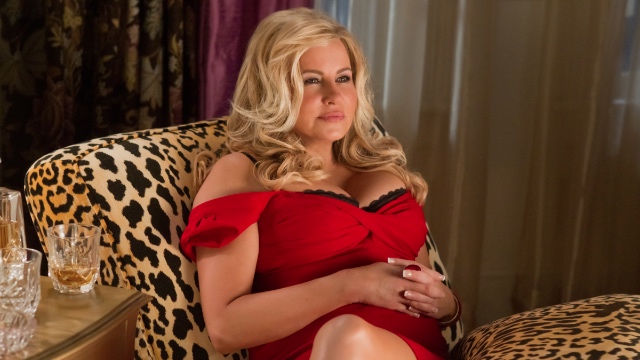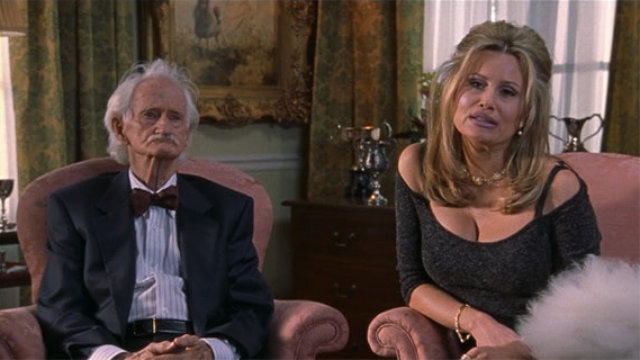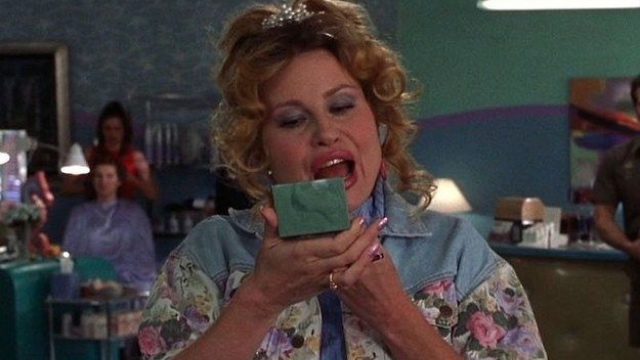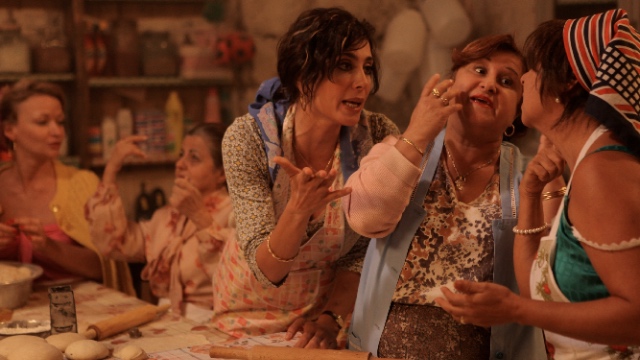
From which perfect cloud of pink convertibles, lip gloss and acrylic nails did you fall? You’ve been a staple in the film industry for over two decades. You have graced us with your presence in so many films that my finger gets tired scrolling through your IMDb page. In the war of the Jennifers—Lawrence, Aniston, Connelly, ad infinitum—you might be billed number two or three (or, like, six) but you’ve always held first place in my heart.
As a queer girl in the suburbs, I first fell in love with you because you refused any mould. Whether a haughty divorcée, an evil stepmom or a chain-smoking sexpot, you’ve made a career of taking “dumb” or “ugly” roles while bringing that plump-lipped, scene-stealing jen noise se quois to every one.
Your career started improbably with… dramatic acting. After studying theatre at Emerson College, you moved to New York to become a serious actress. “It didn’t go very well,” you later said. [i] Maybe you were too tall; too voluptuous; too, well, funny. When an acting teacher asked you to fake cry, your heaving sobs prompted one classmate to take you to a special place, far from any Stanislavski seriousness: The Groundlings. After stepping into this famed improv club, your life would never be the same. You joined their comedy troupe alongside Will Ferrell. He shot to fame as a loud-voiced man-child, but you took a slower route. Fair, as I’m sure you were figuring out how to best manage the stunning female characters living inside you.
And for a while it seemed like fame flitted around you: you pulled the classic cross-continental move to Los Angeles and worked at the same restaurant as America’s sweetheart-to-be Sandra Bullock. While she found success as a bus-driving terrorist fighter (Speed, 1994), you were still wearing an apron. Then, at 32, things started to happen. You landed a part in Seinfeld as Jerry’s masseuse girlfriend who famously refused to give him a massage. Like many a Seinfeldian sweetheart, you were the concubine to his hero; mistress to his narcissus. He got the laughs by calling you a “massage teaser” but you got to storm out on him. “Don’t call me,” you said, slamming the door in his face. Bold words for a bold woman.
Things forever changed in 1999 with a heartfelt coming-of-age tale known as American Pie. You were Stifler’s mom, the Mrs. Robinson of West Michigan. Sporting a skin-tight dress and blonde bouffant, you were the woman who liked her scotch and men the same way—18 years old. Stifler’s mom made Anne Bancroft look like Mary Poppins. I’d always seen your potential, and finally—finally! —the rest of the world was catching up.
Then came Best in Show (2000), in which you were the blinged-out trophy wife, Sherri Ann, who said your marriage to an old man was successful because you both “loved soup.” (Sound logic, really.) I was concerned for Sherri Ann’s happiness in this film, until she met the lesbian dominatrix hired to train her poodle. They fell in love, and even though Sherri Ann didn’t win the dog show, in her new power couple she went on to found American Bitch, “the dog magazine for women and their dogs.” Combining the savvy of Anna Nicole Smith with a love for dogs and bisexuality, in this film you were—by all accounts—the best in show.

And you really were. As if you hadn’t proven it already, in Legally Blonde (2001) you were the only blonde who could out-blonde Reese Witherspoon. As Paulette, you called yourself a “high school drop-out with stretch marks and a fat ass” and yet proceeded to teach us invaluable lessons about the importance of manicures as a form of therapy. You played Paulette with a sincerity owed to her impressive arc: she learns the bend-and-snap to win the hunky UPS man, making her femininity a source of strength.
The new millennium was yours for the taking. Next to Hilary Duff in A Cinderella Story (2004), you overshadowed the then-popping pop star—even though your character couldn’t “show emotion for another hour and a half” due to a fresh round of Botox. It was a joke that poked fun at your own appearance, yet you’ve never been afraid of laughing at yourself. I’ve always loved that about you. Take Date Movie (2006), which was dismissed by critics as “stupefyingly unfunny.” But your spoof of Barbra Streisand was hailed as one of the film’s “few bright moments.” [ii] Nowadays, you’re a regular on CBS’ 2 Broke Girls, playing a Polish woman who smokes electronic cigarettes and loves sausage. O brave new world, that has such people in it!
It’s no coincidence that your rise to stardom overlapped with one of America’s most trying socioeconomic times. Your sense of absurdity poked fun at materialism, class and gender in a way that we desperately needed. Sure, our mortgages were screwed and we heard the phrase “mass destruction” on a daily basis. But seeing you do the bend-and-snap provided a near-universal catharsis. You’d finally found your gifts and you kept giving them.

With adulthood, I have also come to appreciate the deeper implications of your work. Your feminine caricatures were a style of gender performance my nascent, queer self instinctively understood. Your over-the-top female characters proved there was no one way for a woman to be in this world.
Sometimes I lie in bed at night and worry about your career. I fear the risks you took in creating unforgettable characters made such an impact that we can’t forget them. Casting directors often pigeonhole you into playing surgically-enhanced rich ladies. Last year, while accepting the Faith Hubley Career Achievement Award, you joked that maybe you should have stopped at American Pie because you “didn’t need to be all those other fat-faced ladies.” [iii]
While it’s true that you’ve always had the “character” part—the friend, the neighbour, the assistant, the wife—allow me to confirm that you are a lodestar in a legion of important character actresses. These are the women who live in our hearts for all the ways they resists the cookie-cutter perfection of the leads. The pantheon includes such luminaries as Lisa Kudrow, Joan Cusack, Ruth Gordon, Regina King, Shelley Duvall, Amy Sedaris and Cloris Leachman. These actresses understand that a character’s greatness lies in her individuality.
Ms. Coolidge, you are one of the greatest actresses of the century. Your legacy stands as a reminder that many of the best roles aren’t always the biggest. They’re the funniest.





